The Secretary-General of the United Nations transmitted a report on Burundi to the Security Council on 23 February. Bujumbura reacts and speaks of a report based on erroneous information. Tensions ran higher as Burundi was being examined, on Thursday, 9 March, in the Security Council.
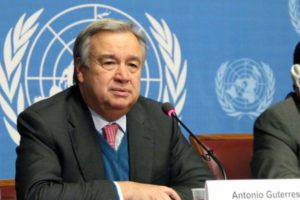
Antonio Guterres: “I am convinced that it is urgent to react to the crisis. Not to intervene immediately would prolong the suffering of the population. “
“For the past two years, the political impasse has only worsened. The space for political dialogue has got narrower because of repression, “UN Secretary General Antonio Guterres said in a report to the Security Council on the period since the adoption of Resolution 2303, On July 29, 2016.
According to him, the exchange of political views, mainly in the form of accusations and counter-accusations, intervenes through social media and communiqués instead of a real dialogue. “A new fact, President Nkurunziza said at the end of 2016 that he could run for a fourth term … which could plunge the country into an even deeper crisis,” said the SG.
Antonio Guterres said he was very concerned about this recent statement of the Burundian President. The adoption of the constitutional amendment contrary to the provisions of the Arusha Agreement in the present circumstances would plunge the country back into an armed conflict with unpredictable consequences for the region. “If Burundians have the sovereign right to amend their constitution according to their own laws, it is necessary to remind that it was President Nkurunziza’s decision to run for a third term that sparked the most serious crisis Burundi has ever experienced.”
According to Mr. Guterres, the adoption of the conclusions of the August 2016 report by the National Commission for the Inter Burundian Dialogue (CNDI) that cancel the limitation of the number of presidential terms and other constitutional amendments would go against the Arusha Agreement.
Precarious security
The UN Secretary-General finds that the human rights violations including murders, enforced disappearances, cases of gender-based violence, arrests and arbitrary detentions, torture and ill-treatment, as well as the presence of unidentified bodies are still reported despite a reduction in violence and the drop in the number of armed clashes.
“More than 200 cases of enforced disappearance have been reported since October 2016, raising serious concerns. The Office of the High Commissioner for Human Rights has established that there have been 593 cases of violation of the right to life between April 2015 and 31 December 2016, and hundreds of people continue to be arrested each month. ”
While the violence that marked the beginning of the crisis in 2015 was largely concentrated in the capital and its surroundings, Antonio Guterres continues, problems were regularly reported elsewhere in the country, especially in the provinces of Bururi, Cibitoke , Gitega, Kirundo, Makamba, Muyinga, Ngozi, Rumonge, Rutana and Ruyigi in 2016.
“What is more, it seems that the Imbonerakure, the youth militia of the ruling party, are more active than in the past, which fuels the feeling of insecurity and the climate of fear. Acts of intimidation, criminal activities, ill-treatment, night patrols and paramilitary training have often been reported in several provinces. “According to the report, the Imbonerakure frequently participated in joint operations with the police and intelligence services.
For the SG, the information that ex-FABs (soldiers from the former army) are increasingly being targeted is of concern. “Cohesion has so far been preserved, but it is likely to be undermined if senior officials, including National Defense Forces (FDN) officers, continue to be targeted.”
Opponents hunted down and absence of freedom of expression
According to the report, members of the opposition parties and those perceived as adversaries continue to be subjected to arbitrary arrest, detention, ill-treatment and enforced disappearances.
“Individuals suspected of human rights violations continue to enjoy total impunity and almost nothing has been done to investigate human rights abuses by state agents or the Imbonerakure.”
The report harks back to political speeches that incite hatred and violence. Since the beginning of the crisis, writes Antonio Guterres, politicians use inflammatory and hateful language in their speeches, in social media, in their press releases and in the press. “This rhetoric is riddled with incitement to violence as well as attacks against the opposition and civil society. Neighboring countries are accused of involvement in assassination attempts. ”
The UN chairman also finds that the freedom of expression and that of the press have remained limited. “Journalists in the private and independent media have continued to face harassment, sometimes resulting in arbitrary arrests, detentions or enforced disappearances.” He, in addition, assures that the civil society organizations are always subject to that repression and highlights the striking off and suspension of some of them.
“I am convinced that it is urgent to react to the crisis. Failure to intervene immediately, within the scope of a dialogue open to all, would prolong the suffering of the population, and we would run the risk of seeing more than a decade of efforts to consolidate peace drastically reduced.”
Jamal Benomar’s fault
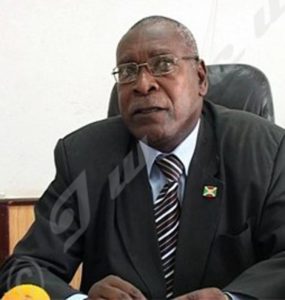
Philippe Nzobonariba: “The government would like to remind the UN SG that the authority of Mr. Jamal Benomar, the report producer, has been officially challenged.”
In a communiqué of 27 February 2017, Burundi Government announced that it had learned through the media that a report on the situation in Burundi “would have been submitted to the United Nations Security Council.” At the same time, it said it ignored the content of that report which was not officially notified to it.
Bujumbura welcomed the work accomplished jointly with the UN particularly from the 2000s. However, it regretted that some lobbies with proven interests and positions against Burundi seem to have more influence on some UN organs to the point of influencing some reports.
Bujumbura puts the blame on the UN Special Adviser for Burundi, Jamal Benomar. “The Government of Burundi would like to remind His Excellency the Secretary-General of the United Nations that the authority of Mr. Jamal Benomar, the producer of the report, was officially challenged. He cannot therefore, even from a moral point of view, present a neutral or balanced report on Burundi. ”
According to the Burundian government, the report refers to unverified facts and indicts higher authorities of the Republic.”For example, the reference to the” 4th term “of the President of the Republic is incomprehensible.”
On March 6, the government sent a letter to the Security Council through its UN Ambassador, Albert Shingiro.
Bujumbura believes that the SG’s report contains unverified information and that it forgets to mention some improvements. “Burundi faces political, security, humanitarian, human rights and development problems like all countries. It is clear that some of the facts mentioned in the report have been exaggerated and others reported without evidence. ”
According to Bujumbura, there has been progress from a political point of view. He mentioned the establishment of the National Commission for the Inter Burundian Dialogue (CNDI), the return of some political opponents and 100,000 Burundian refugees who returned to the country until December 31, 2016.
As far as security is concerned, the government recognizes that the security situation has improved compared to 2015, though some challenges still remain. There are still some isolated cases of banditry that the government is trying to eradicate. Bujumbura refutes the allegations of enforced disappearances. According to it, the young people who fled the country to receive a military training in neighboring countries were declared missing. Bujumbura says that some among the 150 young people who were handed over to the government from the DR Congo in February, had been reported missing.
“The Imbonerakure are not a militia”
Bujumbura also protests against the term “militia” used in the report to describe the Imbonerakure youths affiliated to the ruling CNDD-FDD party. It was surprised, moreover, by the fact that the UNSG did not mention “the opposition youths, who threw grenades in public places, ambushed the leaders of the ruling party and attacked military camps.”
Bujumbura goes on saying that it is clear that this oversight was made deliberately.
As for the freedom of the press, Bujumbura has reaffirmed the re-opening of three radio stations destroyed during the failed coup attempt of 13 May 2015. Burundi has seven TV stations, more than 24 public and private radio stations, 24 newspapers, 17 news sites. In addition, the government says, neither a journalist nor a human rights activist is currently in prison.
Bujumbura asks the international community to understand that the Burundi crisis is political and not ethnic. For Bujumbura, it is better to assist the government in the economic recovery of the local communities.
Adama Dieng warns about possible increase in violence
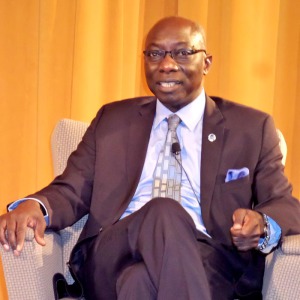
Adama Dieng warns of the massive violence that could occur.
In a letter sent to the UN Security Council on 7 February, Adama Dieng, UN Special Advisor on the Prevention of Genocide, warned of the massive increase in violence that could occur.
“The qualification of the Burundi conflict of low intensity by certain experts must not blind the international community to many indicators that show that Burundi is running the risk of mass violence today.” For Adama Dieng, the fact that Burundi has experienced ethnic violence in the past should not be ignored. “I fear that if the current atmosphere of fear and political divisions continues, there could be an increase in violence in which individuals may be more targeted according to their political or ethnic affiliation.”
He says the concern is sparked by the human rights violations and abuses perpetrated by individuals from the secret services, the police, the army and the Imbonerakure. The Special Adviser urges the Security Council to take serious actions.
“The UN Security Council should impose targeted sanctions against Burundian officials”, said 19 international NGOs in a joint letter sent to the Security Council of the UN.
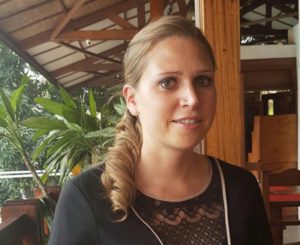
Ida Sawyer: “The UN Security Council should impose targeted sanctions against Burundian officials.”
“The Burundian intelligence services, police, and members of the ruling party’s youth league- the Imbonerakure, are committing murders, enforced disappearances and torture, while the authorities have declined to abide by the UN Security Council’s resolution to deploy police or human rights investigators”, said Ida Sawyer, Director for Central Africa at Human Rights Watch, one of the signatories.
For these organizations, targeted sanctions such as travel bans and assets freezing would send a strong message to the Burundian leaders, who had been so little concerned that they continued to perpetrate violent abuses against their own people. “Obstructing the competence of the United Nations to document and limit violations committed by the Government should force members of the Security Council to take severe measures.”
Reactions
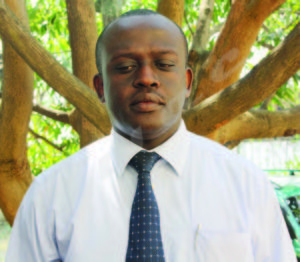 Armel Niyongere
Armel Niyongere
For this human rights activist, the UNSG’s report to the UN Security Council is a warning that this UN top official is giving so that it could take an urgent decision. “We hope that the Security Council will take into account the reports already produced in order to prevent a civil war.”
For Armel Niyongere, the government should know that the UN does not solely base its judgments on its reports or position. Instead of denying all these reports, he says, the Government should show how these reports are biased.
This could prove that there is unverified information. “Unfortunately, it is unable to give sufficient justification for the documented cases.”
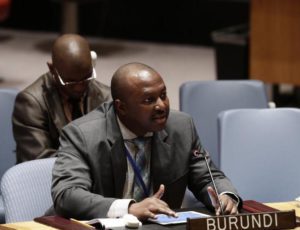 Ambassador Albert Shingiro
Ambassador Albert Shingiro
With regard to the report sent by the SG to the Security Council, the Ambassador of Burundi to the UN reacted via tweeter saying that, in principle, the UN is in good faith but some officials act contrary to the principles and values of this organization.
Concerning the alert of Adama Dieng, Albert Shingiro considers that the report’s content is intended to influence the briefing of the Security Council and boost a hidden agenda.
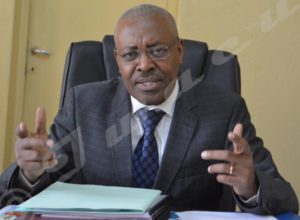 Jean de Dieu Mutabazi
Jean de Dieu Mutabazi
For the president of RADEBU party, Adama Dieng should go to Burundi to corroborate his free statements with the reality on the ground. He also said Dieng’s latest recommendations to the Security Council for Burundi make him lose all credibility and dishonor him.
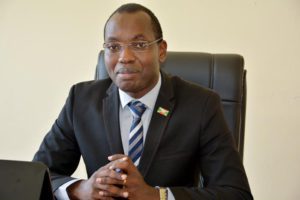 Willy Nyamitwe
Willy Nyamitwe
The Senior Communication Advisor to the Burundian President is surprised by the words of Adama Dieng. “As if the members of the Security Council did not know that this game was intended to influence the decisions against Burundi”, he said.
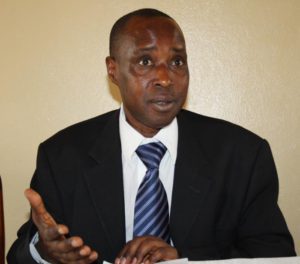 Léonce Ngendakumana
Léonce Ngendakumana
The government should not refute what everyone has been saying for a long time: “The opposition does not mislead the international community by providing false information as the government believes.” He also says these UN officials work with their colleagues in Burundi: “They have more means and expertise than any political organization in Burundi. They depict the reality on the ground.” He calls on the Burundian government to be humble in order to help the Burundian people to put an end to violence, reconcile and establish the rule of law in Burundi. Otherwise, both the country and people risk being destroyed.
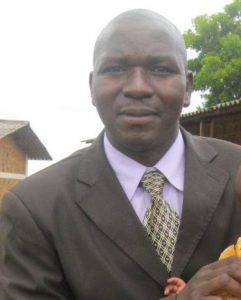 François-Xavier Ndaruzaniye
François-Xavier Ndaruzaniye
For the president of the Izere Ntiwihebure league, this report contains incomplete information and especially prejudices: “There are no massive violations of human rights committed in Burundi, but crimes and banditry like elsewhere.”
Moreover, he says, there is no disaster in Burundi, as the security situation has improved considerably, whereas the report wanted to attribute all the crimes committed in Burundi to the republican institutions such as the army, police, SNR etc. “At the level of the League Izere Ntiwihebure, we find that everything does not work well but that everything is not bad either.”
What is worse, Francois Xavier Ndaruzaniye accuses Jamal Benomar of having drafted a report whose objective was to torpedo the current regime because he never supported it. “His 2015 writings prove that he supported those who staged violent demonstrations and tried to overthrow the government on May 13, 2015.”
He finally says this report only aims to tarnish the image of Burundi like other reports influenced by Jamal Benomar. He also wonders why a possible 4th term has been mentioned while the President of the Republic has not officially announced it so far: “This shows that this report contains prejudices and lies”.

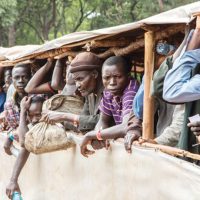
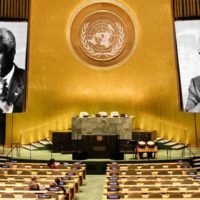
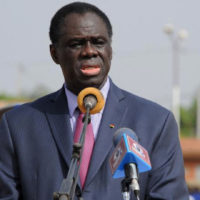
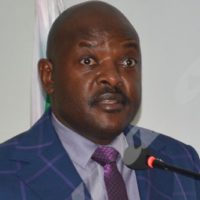
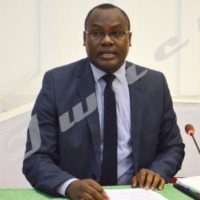













 IWACU Open Data
IWACU Open Data

